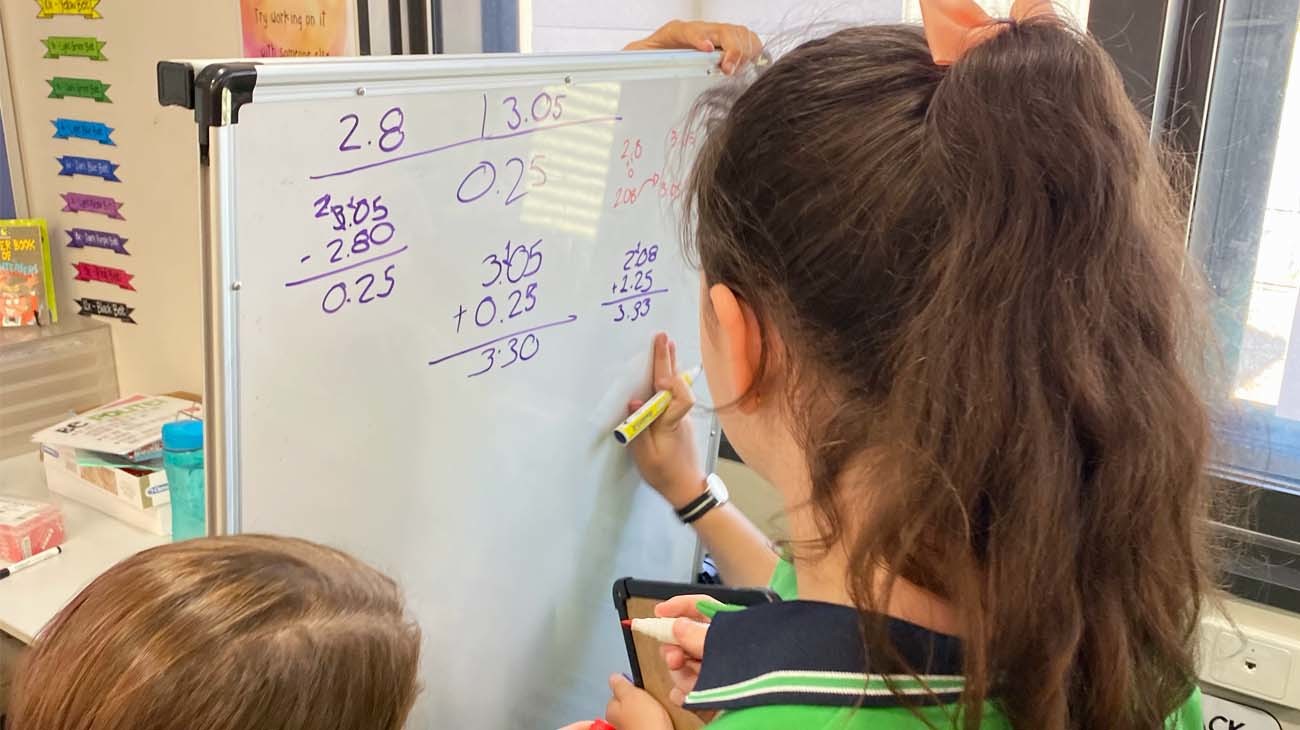Posted Friday, 9 January 2026
Scitech gets Ah! Rated for Fringe
Scitech is returning to FRINGE WORLD Perth with a strictly 18+ show.
Michelle Winship from Makybe Rise Primary School shares her experience with helping her Year 6 students simultaneously develop their social and mathematical skills.

Hello, my name is Michelle Winship and I teach 32 wonderful Year 6 students in Baldivis, Western Australia.
I have been teaching for 11 years now, working in both the early and upper primary years within country and city contexts. As an educator, one constant I have observed within my classrooms is an increasing number of students who appear to be disengaged from mathematics. They often display behaviours like inattentiveness, lack of motivation and unproductiveness. And I found myself asking ‘why?’ This was one of the reasons I was interested to engage in the Champions of Maths program – to develop the confidence and competence of my students when learning mathematics.
When I was younger, I found learning maths to be natural and enjoyable. Now as a teacher I realise that it is a difficult experience for some of my students in my learning community. I decided to participate in the Alcoa Champions of Maths program because I wanted to better support my students to find joy in mathematics by providing opportunities for them to deeply engage in the numeracy curriculum through the problem-solving process.
Learning is a social process, and I am passionate to support my students not just in the academic curriculum, but also the social curriculum. At the beginning of this year, whenever I said the word “mathematics” I was met with many groans, some tears, and a LOT of apprehension! In the first weeks of Term 1, I knew I had to focus on understanding why my students had such reactions. As I began to build trust and respect with my students throughout Term 1, I gained a greater understanding of their previous experiences with mathematics. Being a Year 6 teacher, I understood that some of my students have significant “gaps” in their knowledge and it was extremely difficult to build on their understanding of the Year 6 curriculum if they did not have understanding of prior mathematical milestones. So it became my mission to address misconceptions and develop numerate thinking in my students by meeting them at their point of need.
Initially, when setting up my learning environment, I made many intentional choices to suit my students’ needs. We discussed ‘What Mathematics is Like’ as a precursor task. One of my student’s response was “Maths is like building a house. There are lots of steps to follow and sometimes you don’t understand every step. You have to speak to an expert, maybe a friend or teacher.” The students’ responses were well ranged from finding mathematics easy to difficult for various reasons. This was a great opportunity to ascertain my student’s current attitude towards mathematics and develop a platform to discuss group norms when engaging in mathematical thinking, particularly when it becomes challenging. As a class, we utilised a group decision making process to agree on the following norms:
I highlighted to students that these group norms will be utilised throughout our Numeracy lessons for the year ahead. These norms allowed students to recognise preferred behaviours for all members of our learning community, myself included, and how we would participate as a group together. This helped the students identify what student (internal and external) characteristics they required to successfully participate in groups when problem-solving.
Over the past several months, while involved in the Alcoa Champions of Maths program, I have observed a noticeable shift in my students’ perspectives and opinions of their Numeracy lessons, specifically when they productively struggle within problem-solving lessons where challenging problems, methods and solutions are presented. Students work in visibly random groups which has increased student engagement by giving them accountability to contribute their knowledge, solutions, and understandings. It has also allowed for less reliance on myself as the classroom teacher. As a result, I could teach to different points of needs and differentiate content through enabling and extending prompts, explicitly planned for prior to the problem-solving session. Above all, visibly random groups have been a vehicle to eliminate social barriers between peers, minimising the “smart” label of students and celebrating all contributions from all students.
It is important to note that these humble changes did not happen overnight. However, they have made my mathematics classroom, and Year 6 classroom in general, a safe, supportive, and productive learning community. The social curriculum is just as important as the academic curriculum in my classroom, and I have valued teaching the social side of mathematics. The added bonus is that my students are learning not only social skills that will be invaluable as they transition into secondary school and into their adult lives, but they are also learning key mathematical concepts. This has allowed for a fantastic first semester in our classroom.
In my next blog, I will discuss the academic benefits for my students and how working with my fellow Champions of Maths colleagues and Shyam Drury has developed my planning, teaching, and assessing in mathematics. I look forward to seeing how my students further develop their social and academic skills in the final semester of the school year.
Upon clicking the "Book Now" or "Buy Gift Card" buttons a new window will open prompting contact information and payment details.